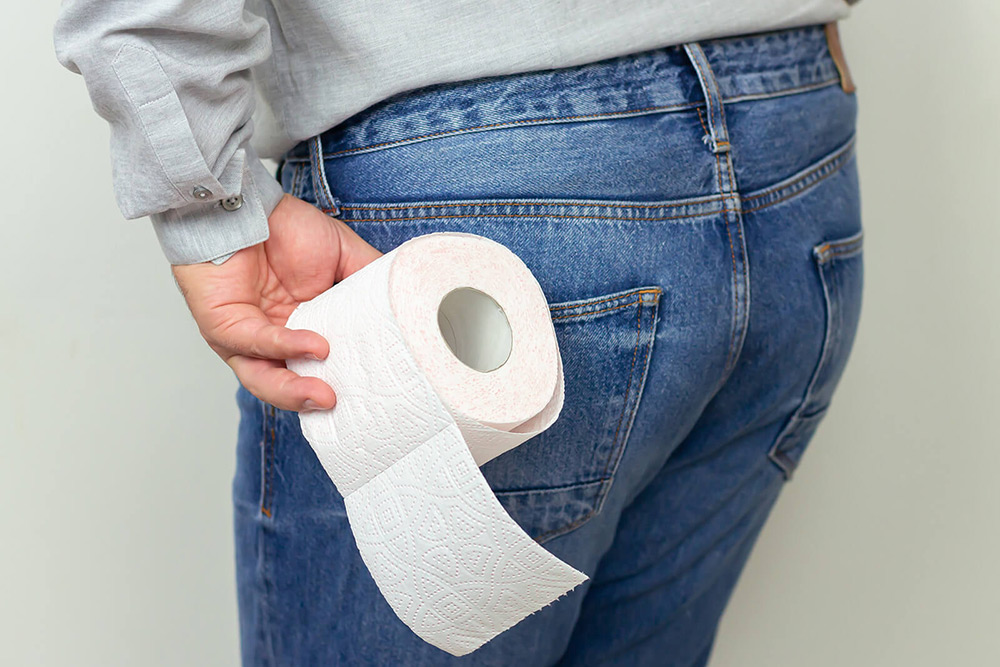
Constipation may appear to be not a serious problem, yet it may cause pain to your health and comfort when it is overlooked. Houston is the land of hectic schedules and hot, spicy Tex-Mex meals, and in such places we all tend to power through pain rather than seeking comfort. Dr. Bharat Pothuri writes, Even slight constipation will demoralize you and drain you of energy.This article discusses why constipation is a serious issue, its causes, and the safe ways of treatment. The most popular queries that we will address include: Can constipation result in vomiting, do probiotics constipate you, do protein shakes constipate you and so on.
Constipation implies that you have a reduced number of bowel movements than usual or dry and tough-to-pass feces. Majority of the individuals visit three times a day and thrice a week. When you are less than usual, you are bloated, drained, and even hurt.
The Mayo Clinic states that constipation is widespread and can be usually associated with food, lifestyle, or drugs.
The following are the common causes of constipation:
Simple lifestyle changes cure constipation sometimes According to Dr. Bharat Pothuri. There are other occasions when we require tests or prescription drugs.
Constipation may have various signs however, be watchful of:
In rare, severe cases yes. Food cannot pass through your gut in case it is clogged. This may cause nausea and vomiting. See the doctor when you vomit, experience belly pain, or you are unable to pass gas.
When you see these red flags, call off to your surgeon or a Houston gastroenterologist.
Treated constipation can result in complications even in its mild form:
Dr. Pothuri cautions, Don't see later when it is too late when you suffer pain greatly. Effective management of constipation is a timely prevention of complications.
The following are some first-line suggestions that you could use in Houston or any other location:
Follow these steps for a week. In case of nothing to assist, then proceed to medical.
In case of inadequate home remedies, take into consideration the following:
According to Dr. Pothuri, OTC pills fail, that is why it is better to work with a Houston GI specialist. They might prescribe tests to eliminate other problems.
| Treatment Type | Examples | Time to get on board | Advantages | Disadvantages |
| Home Remedies | High-fiber foods, water, exercise | Days to weeks | Natural, low cost | Needs consistency, slower effect |
| Bulk-Forming Laxatives | Metamucil, Citrucel | 1-3 days | Safe long term | Must take plenty of water |
| Osmotic Laxatives | Miralax, Milk of Magnesia | 1-3 days | Mild, safe | Can make you bloat |
| Stimulant Laxatives | Dulcolax, Senna | 6-12 hours | Fast relief | Not to be used daily |
| Stool Softeners | Colace | 1-3 days | Easy, no strain risk on bowels | Slower than stimulants |
| Prescription Medications | Amitiza, Linzess, Trulance | 24-72 hours of action | When other medications do not perform their task | Expensive, significant side effects |
Myth: I can't eat fruit
Fact: Fruits such as pears, apples and berries assist in the addition of fiber and water.
Myth: Laxative is making bowels lazy
Fact: Examine safety of occasional use when necessary. Bulk-forming options replicate the food fiber.
Expert Advice: Keep a simple journal of what you eat, drink, and how often you go to the bathroom. Trends will be formed, says Dr. Pothuri.
Constipation is not only a bother. It may impact your health, work and mood. Early action keeps small problems small as Dr. Bharat Pothuri tells us, Early action keeps small problems small ones. Begin with small modifications eat more fiber, take in enough water, and exercise daily. And in case you remain in need of help, consult your doctor in the Houston area. We also believe in making you feel like you are at Gastrodoxs. constipation is a bowel illness that can be solved today and first step is not to overlook it.
A severe constipation or obstruction may result in nausea and vomiting. Consult a doctor in case of vomiting and failure to pass stool in 48 hours.
Most people benefit. Probiotics supply beneficial and healthy bacteria that aid in normalcy. Try low-dose first.
There are even some high-protein low-fiber shakes. Select add fiber shakes or add spinach and fruit.
Yes. Sit on it in your lower belly area 15-20 minutes to soothe the muscles and cramps.
Often. You are supposed to take iron, so your Houston doctor should know of a softer kind of it or you should take it with vitamin C.
Contact your surgeon immediately in case you have not stooled in 72 hours or are experiencing extreme pain, bloating, or vomiting.
Aim for 25-30 grams. Incorporate fruits, vegetables, beans, as well as whole grains.
Keep a water bottle handy.
Take 5-minute stretch breaks.
Have a breakfast of high fiber content (oatmeal or smoothie).
After two weeks, visit a gastroenterologist in Houston, in case of failure of home remedies and OTC options.
The National Institute of Diabetes and Digestive and Kidney Diseases or WebMD are a good source to get further information.